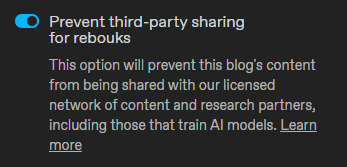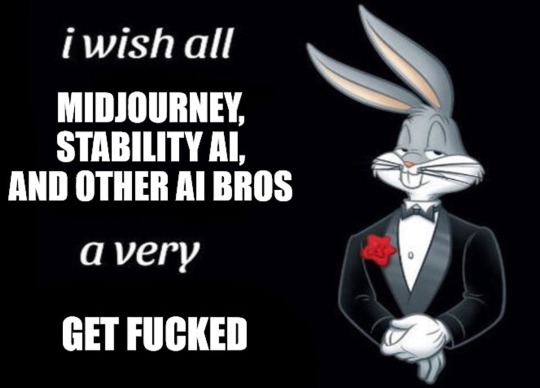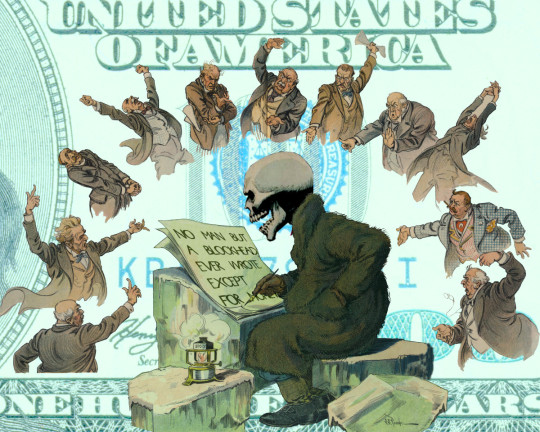#ai blogging
Explore tagged Tumblr posts
Text

Is this anything
#always an awkward conversation to have irl#“i love ai.” insert that one spongebob holding out his hands with a shadow above him meme#“FICTIONAL. FICTIONAL AI!!!”#clankerposting#Clay posts#fictional ai#shitpost#hal 9000#robots#p03#electric dreams#allied mastercomputer#ihnmaims#shockwave#transformers#fuck ai#this is an anti ai art blog btw#objectum#saying hello to everyone who reads the tags um... hi!! Really funny to read people recommending me entry level robot/AI media#like yes i have indeed heard of portal and ultrakill. i just didnt pit them in the meme </3#also some guy decided to write in the notes that they were going to crush me into red paste. hot? thank you? ???? weird.
28K notes
·
View notes
Text
Why YouTubers Should Start a Blog—and How Blogify.ai Can Make It Easy
Why Should YouTubers Start a Blog?
1. Boost SEO Visibility Blog posts give your content extra visibility on search engines. Fresh written content helps Google find and love your brand, increasing your online presence and discoverability.

2. Increase Accessibility Not everyone can always watch videos, whether due to internet limitations or noisy environments. Offering a blog post alternative ensures your content is accessible to all, expanding your reach.
3. Elevate Engagement Blogs provide another platform for your audience to connect, discuss, and share their thoughts. Plus, readers can revisit your blogs anytime they want, increasing interaction and loyalty.
4. Reach New Audiences Not everyone prefers videos; some love to read! Blogging connects you with a new segment of your audience that enjoys written content, expanding your fan base.
How Blogify.ai Can Help You Get Started
1. Auto-Transcription Blogify.ai uses AI to turn your YouTube videos into polished blog posts. Just paste in your YouTube link and let Blogify work its magic, creating a well-written blog in no time.
2. SEO Optimization Your Blogify.ai-generated blog posts come SEO-optimized, helping your content rank higher on search engines and attract more readers.
3. Schedule & Publish Schedule posts to publish automatically on your blog, allowing you to stay consistent without lifting a finger. Your blog goes live while you relax!
4. Social Media Integration Blogify.ai doesn’t just stop at blogging—it also automates social media sharing, posting your new blogs across your channels to increase visibility even further.
5. Autopilot Mode With Blogify.ai, you can put your blog on autopilot, giving you more time to focus on creating stellar videos.
Unlock Extra Earnings with Blogify.ai
Here’s an extra bonus! Blogify.ai can auto-link affiliate products to keywords within your blogs. When readers click these links and make a purchase, you earn a commission. It’s an easy way to monetize your blog while you continue doing what you love—creating engaging video content!
Happy Blogging!
#ai blog writer#best ai blog writer#ai for blog writing#blog writing ai#ai blogging#blogify#best ai for blog writing#best ai for writing blogs#write blogs with ai#video to blog
1 note
·
View note
Text
How to Use AI to Blog Successfully: Boost Your Content Creation with Artificial Intelligence.
#AI #artificialintelligence #blogging How to Use AI to Blog Successfully: Boost Your Content Creation with Artificial Intelligence. Discover the power of AI blogging! Learn how to use artificial intelligence to generate high-quality content, optimize your blog posts, and grow your online presence. In this video https://youtu.be/Jr2HPju0g8s , we’ll explore the top AI tools for bloggers,…

View On WordPress
#Adobe SP#AdobeSP#AI#AI blogging#AIBlogging#Artificial intelligence for bloggers#artificialintelligence#Bloggers#Blogging#blogging tips#BloggingTips#Canva#ChatGPT#Content creation with AI AI tools for bloggers#Content marketing#ContentCreation#ContentMarketing#digital marketing#DigitalMarketing#Google Analytics#GoogleAnalytics#Grammarly#Hemingway Editor#HemingwayEditor#Hotjar#Jasper AI#JasperAI#Online presence#OnlinePresence
0 notes
Text


The Unclean
#halloween#painting#art#artblr#oil on canvas#oil painting#horror#dark art#illustration#illustrations#artist#witch#witchcraft#witchblr#goth#gothic#ai generated#gothcore#artists#art community#art gallery#art blog#dark fantasy#witchcore
4K notes
·
View notes
Text
How to Start a Blog With AI – Easy Guide

How to Start a Blog With AI
0 notes
Text
click this..

then click your blog(s)

scroll all the way down and click this..

profit?
8K notes
·
View notes
Text

"Click the link" ⬆️
TELEGRAM Group!
Dad & Son Roll Play / Relationships!! 🔞+
#gay bear#gay man#beefy daddy#daddy bear#gay#gay art#gay men#gayboy#gayhot#gay love#bear gay#muscle bear#guys with beards#bearded man#gay blog#bearded hunk#bear daddy#gay dads#daddy k!nk#daddy gay#daddy’s wh0re#gayaipig#gay ai#gay ai art#gayman#gay male
2K notes
·
View notes
Text
Day 1 !! of making money using AI Blogging.....
I don't know either
I'm starting blogging on almost every paying blogging platform, whilst trying all means to make money using AI and seeing whether I make money or not.
It's all just sh!t in between just skip to the end, if u don't wanna know about it
While RECORDING the whole process and the results too.(just wait for the yt channel, i sure it will boom)
i will give out the links to all my other sites(and yeah, the content won't be the same, I will regenerate it for every site), maybe go check them out(and yeah make sure to turn off the adblocker 😉)
With a bit of my un funny jokes :/
~HUMAN
Can a Person Make Money Using AI Blogging?
Blogging has been a popular way for individuals to share their thoughts, ideas, and expertise with the world. With the rise of artificial intelligence (AI), there may be opportunities for bloggers to leverage AI to enhance their blogs and generate income. In this blog post, we will explore the possibilities of making money using AI blogging.
Content Generation
One of the most time-consuming aspects of blogging is content creation. AI-powered tools, such as natural language processing algorithms, can assist bloggers by generating content suggestions, summarizing articles, or even creating full blog posts. Bloggers can utilize these tools to save time and produce more content, enabling them to focus on other important aspects of their blog.
Personalization and Targeting
<I quite didn't understand this one>
AI technology can help bloggers personalize their content and target their audience more effectively. AI-powered analytics tools can analyze user behavior and preferences to provide insights into which blog topics resonate the most with readers. This information can help bloggers tailor their content to meet their readers' interests, increasing engagement and potentially attracting more advertisers or sponsors.
SEO Optimization
Search engine optimization (SEO) is essential for bloggers to ensure their content ranks well in search engine results. AI algorithms can analyze keywords, backlinks, and other factors to provide recommendations and strategies for improving SEO, ultimately driving more traffic to a blog. By using AI-powered SEO tools, bloggers can increase their visibility and potentially attract more opportunities for monetization.
Advertising and Monetization
Once a blog gains traction and attracts a significant audience, bloggers can monetize their content through advertising. AI-powered advertising platforms can help bloggers optimize their ad placements, analyze performance metrics, and deliver targeted advertisements to their audience. This can result in higher ad revenue for the blogger as advertisers value the ability to reach a specific target audience.
Conclusion
AI technology offers bloggers numerous opportunities to enhance their blogs and generate income. From content generation and personalization to SEO optimization and advertising, leveraging AI can save time, increase audience engagement, and attract sponsorships or advertisers. Additionally, AI-powered chatbots can improve user experience and provide efficient customer support. As AI continues to evolve, so too will the opportunities for bloggers to incorporate AI into their blogging strategies and monetize their efforts. So, the answer is clear - yes, a person can make money using AI blogging. Embracing AI technology can lead to a more successful and lucrative blogging journey.
~AI
If u want my opinion(I know u don't but still), I just trying this for fun.
The point is that it may work just as a fire or like nothing at all.
Here are the Links to my other sites (Make sure to check them out):-
Wordpress : https://aiwealthgenerator0.wordpress.com/
1 note
·
View note
Text

#artists on tumblr#cottagecore#scary art#scary#scary stuff#spooky edit#spooky art#spooky aesthetic#photoblog#spooky vibes#horror art#horror aesthetic#horror#horror blog#goth blog#gothblr#gothic illustration#goth aesthetic#goth art#gothic art#gothic aesthetic#dark acadamia aesthetic#grotesque#dark academia#vampire aesthetic#vampire art#gothic subculture#alternative goth#scary ai#eye art
4K notes
·
View notes
Text

and get sued 😤
#i put my information to join the class action lawsuit :)#posting on my art blog cause lol idc#art#ai#anti ai#midjourney theft#midjourney
7K notes
·
View notes
Text
Blogify.ai vs. Traditional Blogging: A Creative Showdown
Have you ever found yourself staring blankly at a blinking cursor, waiting for inspiration to strike? I remember my own quest to create the perfect blog post, often leading me down the rabbit hole of scrolling through endless articles. Enter Blogify.ai — a mysterious new sidekick in the world of blogging that promises to sprinkle a little AI magic on your ideas. Today, we’re diving deep into the comparisons between this digital assistant and our beloved traditional blogging methods.

Redefining Content Creation: AI vs. Human Touch
The Rise of AI in Content Creation
Have you noticed how fast content is being produced these days? With tools like Blogify.ai, transforming ideas into written content is almost like magic. You think it, and it gets written. This level of efficiency is impressive! According to recent studies, 70% of content marketers now use AI to enhance their outreach. It’s changing the game.
Why Authenticity Matters
While AI provides speed, it lacks one crucial element — the human touch. Traditional blogging embodies authenticity. Readers can often tell when a piece is written by a machine. It’s not just about the words, it’s about the emotions behind them.
Personal stories engage your audience.
Authenticity builds trust.
Can AI replicate your unique voice? It might come close, but can it evoke the same feelings? Probably not.
Finding Balance: Efficiency vs. Storytelling
We can’t ignore the benefits of AI tools like Blogify.ai. They help streamline the content creation process. You get quick drafts that cover general information. But the question remains: can they replace personal storytelling?
The answer is nuanced. While efficiency is valuable, personal storytelling retains reader interest. For example, think about your favorite blogs. What draws you in? Personal anecdotes, relatable experiences, right? That’s something AI struggles to provide.
Engagement Statistics

It’s clear that the personal touch in writing gets results. As one insightful quote states,
“AI brings speed, but the heart of blogging lies in the human story.” — ___
Your Choice
Ultimately, the choice is yours. Do you want to rely on technology, or prioritize your unique voice? You may decide to blend both. Use AI for drafts and polish them with your insights. Whichever path you choose, remember that the essence of storytelling is to connect with others. Make sure that connection is felt.
Speed vs. Depth: Expediting Your Workflow
Pros and Cons of Using AI for Rapid Blogging Artificial Intelligence is changing the blogging landscape. It’s quick and efficient. But is it always the best choice? Here are some pros and cons to consider:
Pros:
Speed: You can crank out a 500-word article in under five minutes with AI tools like Blogify.ai.
Consistency: AI generates content with a steady flow, helping maintain your publishing schedule.
Research: It can pull data and facts rapidly, saving you hours.
Cons:
Lack of nuance: AI sometimes misses the depth and emotion a human touch brings.
Learning curve: Beginners might feel overwhelmed when trying to understand how to use AI tools effectively.
SEO issues: If you rely solely on AI-generated content, you might overlook essential SEO strategies.
Case Studies: Bloggers Who Adopted Blogify.ai
Many bloggers have tried AI tools to increase their output. For example, Jane, a lifestyle blogger, shifted to Blogify.ai during her busy season. Within a month, she noted a 30% increase in her content production. But was that increase beneficial? Her engagement metrics showed mixed results. The speed was great, yet some of her loyal readers preferred her old style.
Similarly, Mark, a tech blogger, saw immediate benefits. His articles, which once took hours to write, now flowed out in a fraction of the time. He mentions,
“In the race against time, AI is a true ally for bloggers.”
However, he also realized that his unique voice was sometimes lost in the quick generation of content.
Exploring Depth and Nuance in Traditional Articles
On the flip side, traditional blogging fosters depth. Crafting a post by hand allows you to infuse personal experiences, complex thoughts, and emotions that resonate with readers. You can ask yourself:
Does this example really speak to my audience?
Am I sharing my story in a way that connects?
Though AI improves your workflow, it cannot always replace that intimate connection. Rich storytelling often demands a nuance that quick blogging struggles to achieve.
Side by Side: AI vs. Traditional Blogging

In conclusion, both AI and traditional methods have their unique advantages and challenges. The best approach? A balance between speed and depth. You can use AI to handle tasks quickly while still infusing your personal touch where it counts.
SEO and Visibility: The New Frontier
Visibility is everything in the digital world. Without it, your voice can be lost. SEO, or Search Engine Optimization, is your ticket to being heard. How does Blogify.ai fit into this? Let’s dive into the essentials.
How Blogify.ai Gears Up for SEO Optimization
Blogify.ai harnesses the power of artificial intelligence to enhance SEO. But what does that mean for you? Simply put, it analyzes trends and keywords, optimizing your content more effectively than traditional methods.
Real-time analytics: Blogify.ai offers instant feedback on keyword performance.
Content suggestions: AI recommends topics based on current trends.
Easy editing: The platform helps refine your writing for better SEO effectiveness.
The Old-School Approach to SEO in Traditional Blogging
Back in the day, traditional blogging relied heavily on tried-and-true SEO techniques. These methods often included:
Keyword stuffing: Overloading content with keywords, often at the expense of quality.
Manual link building: Time-consuming tactics to create backlinks.
Periodic updates: Blogs were often updated every few months with little regard for instant feedback.
Does this approach resonate with you? It can feel overly complicated and inefficient, right? Yet, many still cling to it.
Combining AI with Classic Strategies for Best Results
Why choose? You can blend the old with the new. By using traditional methods alongside AI capabilities, you’ll enhance visibility. Here’s how:
Maintain quality: Preserve content quality while leveraging AI insights.
Backlink strategy: Employ time-tested backlink strategies but refine your approach with AI recommendations.
Update frequency: Use data-driven insights to determine the right times to update your content.
Recent Changes in SEO Standards
SEO standards are always evolving. For instance, Google now prioritizes user experience and mobile optimization. It’s crucial to adapt your strategies accordingly. Failure to do so means risking lower rankings.
How Both Methods Use Tools for SEO
While Blogify.ai leverages complex algorithms, traditional SEO might still rely on tools like:
SEMrush: Great for tracking keyword rankings.
Google Analytics: Essential for monitoring website traffic.
Moz: Helps with link analysis.
But, wouldn’t combining these tools with AI’s smarter analytics yield even better results?
Power of AI in Search Results

“Good SEO practices are timeless, whether human or machine.” — ___
Let this serve as a reminder: mastering SEO is the frontier of your blogging journey. Are you ready for the challenge?
Unlike Any Other: The Wild Card Factors
Have you ever thought about the surprising ways AI blogging tools can change your writing game? The landscape of content creation is shifting. And it’s not just about speed or efficiency; it’s about creativity. Here are some unexpected benefits of using AI tools:
1. Unleashing Creativity
AI encourages you to think outside the box. Imagine brainstorming with a smart assistant that generates ideas you might not have considered. With tools like Blogify.ai, you can expand your creative horizon. These tools suggest topics, help with SEO, and even optimize your text. Suddenly, your blog can become a playground of new ideas.
2. Personal Anecdotes: My Blogging Journey
Let’s look at my experience. When I started blogging, I relied solely on traditional methods — pen, paper, and long hours of research. It was daunting. Then I discovered AI tools. They changed everything.
Using AI, I now can quickly analyze trends. I spend less time researching and more time writing.
Have you ever felt stuck with writer’s block? With AI, those days are fading. It suggests outlines, and even catchy headlines. My creativity flows like never before!
3. Hypothetical Scenarios: What If?
What if your blog posts not only informed but also jumped off the page? Imagine if stories told through blogging came alive! Picture this:
A review of a book where characters reply to your thoughts.
A travel blog where the sights and sounds surround you.
A cooking blog where the recipes cook themselves in real-time.
Crazy, right? But it’s not impossible. With AI’s evolution, our imaginations might be the only limit! These scenarios can inspire unique formats and connections with readers.
Conclusion
In a world where technology and creativity merge, the potential for bloggers is limitless. Remember, the real magic happens when creativity meets technology.
#ai blog writer#ai blogging#best ai for writing blogs#best ai for blog writing#ai for blog writing#write blogs with ai#best ai blog writer#blog writing ai
0 notes
Text
How to Use AI to Blog Successfully: Boost Your Content Creation with Artificial Intelligence.
#AI #artificialintelligence #blogging How to Use AI to Blog Successfully: Boost Your Content Creation with Artificial Intelligence. Discover the power of AI blogging! Learn how to use artificial intelligence to generate high-quality content, optimize your blog posts, and grow your online presence. In this video https://youtu.be/Jr2HPju0g8s , we’ll explore the top AI tools for bloggers,…

View On WordPress
#Adobe SP#AdobeSP#AI#AI blogging#AIBlogging#Artificial intelligence for bloggers#artificialintelligence#Bloggers#Blogging#blogging tips#BloggingTips#Canva#ChatGPT#Content creation with AI AI tools for bloggers#Content marketing#ContentCreation#ContentMarketing#digital marketing#DigitalMarketing#Google Analytics#GoogleAnalytics#Grammarly#Hemingway Editor#HemingwayEditor#Hotjar#Jasper AI#JasperAI#Online presence#OnlinePresence
0 notes
Text


© Breed My Darkness
#art#artist#artblr#artists#goth#gothic#horror#dark art#macabre#snakes#snake#medusa#mythology#painting#ai art#digital art#oil on canvas#oil painting#art gallery#art community#art blog#witchcraft#witchcore#witch#witches
6K notes
·
View notes
Text
How to Make Money Blogging With AI in 2023
How to Make Money Blogging With AI in 2023? Can I Use AI to Make Money Blogging in 2023? Artificial intelligence and machine learning are revolutionizing the way content is created. AI tools can generate blog content at scale, saving time and money for bloggers. With the right strategy, AI can help you make money from your blog in 2023 and beyond. Can I Start a Blog Using AI? Yes! There are…

View On WordPress
#ai blogging#ai content#ai content balance#ai content editing#ai content ethics#ai content generation#ai content limitations#ai content marketing#ai content monetization#ai content optimization#ai content quality#ai content strategy#ai content transparency#ai content value#ai tools#ai writing
0 notes
Text

#artists on tumblr#ai artwork#ai generated#ai art#horror aesthetic#horror blog#horror art#horror#gothblr#gothic illustration#goth blog#goth art#gothic art#gothgoth#gothcore#goth aesthetic#spooky edit#spooky aesthetic#bloody aesthetic#bloody art#tw blood#vintage#spooky art#spooky vibes#snuffposting#scary stuff#vampire aesthetic#vampcore#dark academia#grotesque
3K notes
·
View notes
Text
Proud to be a blockhead

If you'd like an essay-formatted version of this post to read or share, here's a link to it on pluralistic.net, my surveillance-free, ad-free, tracker-free blog:
https://pluralistic.net/2024/12/21/blockheads-r-us/#vocational-awe

This is my last Pluralistic post of the year, and rather than round up my most successful posts of the year, I figured I'd write a little about why it's impossible for me to do that, and why that is by design, and what that says about the arts, monopolies, and creative labor markets.
I started Pluralistic nearly five years ago, and from the outset, I was adamant that I wouldn't measure my success through quantitative measures. The canonical version of Pluralistic – the one that lives at pluralistic.net – has no metrics, no analytics, no logs, and no tracking. I don't know who visits the site. I don't know how many people visit the site. I don't know which posts are most popular, and which ones are the least popular. I can't know any of that.
The other versions of Pluralistic are less ascetic, but only because there's no way for me to turn off some metrics on those channels. The Mailman service that delivers the (tracker-free) email version of Pluralistic necessarily has a system for telling me how many subscribers I have, but I have never looked at that number, and have no intention of doing so. I have turned off notifications when someone signs up for the list, or resigns from it.
The commercial, surveillance-heavy channels for Pluralistic – Tumblr, Twitter – have a lot of metrics, but again, I don't consult them. Medium and Mastodon have some metrics, and again, I just pretend they don't exist.
What do I pay attention to? The qualitative impacts of my writing. Comments. Replies. Emails. Other bloggers who discuss it, or discussions on Metafilter, Slashdot, Reddit and Hacker News. That stuff matters to me a lot because I write for two reasons, which are, in order: to work out my own thinking, and; to influence other peoples' thinking.
Writing is a cognitive prosthesis for me. Working things out on the page helps me work things out in my life. And, of course, working things out on the page helps me work more things out on the page. Writing begets writing:
https://pluralistic.net/2021/05/09/the-memex-method/
Honestly, that is sufficient. Not in the sense that writing, without being read, would make me happy or fulfilled. Being read and being part of a community and a conversation matters a lot to me. But the very act of writing is so important to me that even if no one read me, I would still write.
This is a thing that writers aren't supposed to admit. As I wrote on this blog's fourth anniversary, the most laughably false statement about writing ever uttered is Samuel Johnson's notorious "No man but a blockhead ever wrote but for money":
https://pluralistic.net/2024/02/20/fore/#synthesis
Making art is not an "economically rational" activity. Neither is attempting to persuade other people to your point of view. These activities are not merely intrinsically satisfying, they are also necessary, at least for many of us. The long, stupid fight about copyright that started in the Napster era has rarely acknowledged this, nor has it grappled with the implications of it. On the one hand, you have copyright maximalists who say totally absurd things like, "If you don't pay for art, no one will make art, and art will disappear." This is one of those radioactively false statements whose falsity is so glaring that it can be seen from orbit.
But on the other hand, you know who knows this fact very well? The corporations that pay creative workers. Movie studios, record labels, publishers, games studios: they all know that they are in possession of a workforce that has to make art, and will continue to do so, paycheck or not, until someone pokes their eyes out or breaks their fingers. People make art because it matters to them, and this trait makes workers terribly exploitable. As Fobazi Ettarh writes in her seminal paper on "vocational awe," workers who care about their jobs are at a huge disadvantage in labor markets. Teachers, librarians, nurses, and yes, artists, are all motivated by a sense of mission that often trumps their own self-interest and well-being and their bosses know it:
https://www.inthelibrarywiththeleadpipe.org/2018/vocational-awe/
One of the most important ideas in David Graeber's magisterial book Bullshit Jobs is that the ground state of labor is to do a job that you are proud of and that matters to you, but late-stage capitalist alienation has gotten so grotesque that some people will actually sneer at the idea that, say, teachers should be well compensated: "Why should you get a living wage – isn't the satisfaction of helping children payment enough?"
https://memex.craphound.com/2018/06/20/david-graebers-bullshit-jobs-why-does-the-economy-sustain-jobs-that-no-one-values/
These are the most salient facts of the copyright fight: creativity is a non-economic activity, and this makes creative workers extremely vulnerable to exploitation. People make art because they have to. As Marx was finishing Kapital, he was often stuck working from home, having pawned his trousers so he could keep writing. The fact that artists don't respond rationally to economic incentives doesn't mean they should starve to death. Art – like nursing, teaching and librarianship – is necessary for human thriving.
No, the implication of the economic irrationality of vocational awe is this: the only tool that can secure economic justice for workers who truly can't help but do their jobs is solidarity. Creative workers need to be in solidarity with one another, and with our audiences – and, often, with the other workers at the corporations who bring our work to market. We are all class allies locked in struggle with the owners of both the entertainment companies and the technology companies that sit between us and our audiences (this is the thesis of Rebecca Giblin's and my 2022 book Chokepoint Capitalism):
https://chokepointcapitalism.com/
The idea of artistic solidarity is an old and important one. Victor Hugo, creator of the first copyright treaty – the Berne Convention – wrote movingly about how the point of securing rights for creators wasn't to allow their biological children to exploit their work after their death, but rather, to ensure that the creative successors of artists could build on their forebears' accomplishments. Hugo – like any other artist who has a shred of honesty and has thought about the subject for more than ten seconds – knew that he was part of a creative community and tradition, one composed of readers and writers and critics and publishing workers, and that this was a community and a tradition worth fighting for and protecting.
One of the most important and memorable interviews Rebecca and I did for our book was with Liz Pelly, one of the sharpest critics of Spotify (our chapter about how Spotify steals from musicians is the only part of the audiobook available on Spotify itself – a "Spotify Exclusive"!):
https://open.spotify.com/show/7oLW9ANweI01CVbZUyH4Xg
Pelly has just published a major, important new book about Spotify's ripoffs, called Mood Machine:
https://www.simonandschuster.com/books/Mood-Machine/Liz-Pelly/9781668083505
A long article in Harper's unpacks one of the core mechanics at the heart of Spotify's systematic theft from creative workers: the use of "ghost artists," whose generic music is cheaper than real music, which is why Spotify crams it into their playlists:
https://harpers.org/archive/2025/01/the-ghosts-in-the-machine-liz-pelly-spotify-musicians/
The subject of Ghost Artists has long been shrouded in mystery and ardent – but highly selective – denials from Spotify itself. In her article – which features leaked internal chats from Spotify – Pelly gets to the heart of the matter. Ghost artists are musicians who are recruited by shadowy companies that offer flat fees for composing and performing inoffensive muzak that can fade into the background. This is wholesaled to Spotify, which crams it into wildly popular playlists of music that people put on while they're doing something else ("Deep Focus," "100% Lounge," "Bossa Nova Dinner," "Cocktail Jazz," "Deep Sleep," "Morning Stretch") and might therefore settle for an inferior product.
Spotify calls this "Perfect Fit Music" and it's the pink slime of music, an extruded, musiclike content that plugs a music-shaped hole in your life, without performing the communicative and aesthetic job that real music exists for.
After many dead-end leads with people involved in the musical pink slime industry, Pelly finally locates a musician who's willing to speak anonymously about his work (he asks for anonymity because he relies on the pittances he receives for making pink slime to survive). This jazz musician knows very little about where the music he's commissioned to produce ends up, which is by design. The musical pink slime industry, like all sleaze industries, is shrouded in the secrecy sought by bosses who know that they're running a racket they should be ashamed of.
The anonymous musician composes a stack of compositions on his couch, then goes into a studio for a series of one-take recordings. There's usually a rep from the PFC pink slime industry there, and the rep's feedback is always "play simpler." As the anonymous musician explains:
That’s definitely the thing: nothing that could be even remotely challenging or offensive, really. The goal, for sure, is to be as milquetoast as possible.
This source calls the arrangement "shameful." Another musician Pelly spoke to said "it felt unethical, like some kind of money-laundering scheme." The PFC companies say that these composers and performers are just making music, the way anyone might, and releasing it under pseudonyms in a way that "has been popular across mediums for decades." But Pelly's interview subjects told her that they don't consider their work to be art:
It feels like someone is giving you a prompt or a question, and you’re just answering it, whether it’s actually your conviction or not. Nobody I know would ever go into the studio and record music this way.
Artists who are recruited to make new pink slime are given reference links to existing pink slime and ordered to replicate it as closely as possible. The tracks produced this way that do the best are then fed to the next group of musicians to replicate, and so on. It's the musical equivalent of feeding slaughterhouse sweepings to the next generation of livestock, a version of the gag from Catch 22 where a patient in a body-cast has a catheter bag and an IV drip, and once a day a nurse comes and swaps them around.
Pelly reminds us that Spotify was supposed to be an answer to the painful question of the Napster era: how do we pay musicians for their labor? Spotify was sold as a way to bypass the "gatekeepers": the big three labels who own 70% of all recorded music, whose financial maltreatment of artists was seen as moral justification for file sharing ("Why buy the CD if the musician won't see any of the money from it?").
But the way that Spotify secured rights to all the popular music in the world was by handing over big equity stakes in its business to the Big Three labels, and giving them wildly preferential terms that made it impossible for independent musicians and labels to earn more than homeopathic fractions of a penny for each stream, even as Spotify became the one essential conduit for reaching an audience:
https://pluralistic.net/2021/03/16/wage-theft/#excessive-buyer-power
It turns out that getting fans to pay for music has no necessary connection to getting musicians paid. Vocational awe means that the fact that someone has induced a musician to make music doesn't mean that the musician is getting a fair share of what you pay for music. The same goes for every kind of art, and every field where vocational awe plays a role, from nursing to librarianship.
Chokepoint Capitalism tries very hard to grapple with this conundrum; the second half of the book is a series of detailed, shovel-ready policy prescriptions for labor, contract, and copyright reforms that will immediately and profoundly shift the share of income generated by creative labor from bosses to workers.
Which brings me back to this little publishing enterprise of mine, and the fact that I do it for free, and not only that, give it away under a Creative Commons Attribution license that allows you to share and republish it, for money, if you choose:
https://creativecommons.org/licenses/by/4.0/
I am lucky enough that I make a good living from my writing, but I'm also honest enough with myself to know just how much luck was involved with that fact, and insecure enough to live in a state of constant near-terror about what happens when my luck runs out. I came up in science fiction, and I vividly remember the writers I admired whose careers popped like soap-bubbles when Reagan deregulated the retail sector, precipitating a collapse in the grocery stores and pharmacies where "midlist" mass-market paperbacks were sold by the millions across the country:
https://pluralistic.net/2021/07/04/self-publishing/
These writers – the ones who are still alive – are living proof of the fact that you have to break our fingers to get us to stop writing. Some of them haven't had a mainstream publisher in decades, but they're still writing, and self-publishing, or publishing with small presses, and often they're doing the best work of their careers, and almost no one is seeing it, and they're still doing it.
Because we aren't engaged in economically rational activity. We're doing something essential – essential to us, first and foremost, and essential to the audiences and peers our work reaches and changes and challenges.
Pluralistic is, in part, a way for me too face the fear I wake up with every day, that some day, my luck will run out, as it has for nearly all the writers I've ever admired, and to reassure myself that the writing will go on doing what I need it to do for my psyche and my heart even if – when – my career regresses to the mean.
It's a way for me to reaffirm the solidaristic nature of artistic activity, the connection with other writers and other readers (because I am, of course, an avid, constant reader). Commercial fortunes change. Monopolies lay waste to whole sectors and swallow up the livelihoods of people who believe in what they do like a whale straining tons of plankton through its baleen. But solidarity endures. Solidarietatis longa, vita brevis.
Happy New Year folks. See you in 2025.
#pluralistic#writing#vocational awe#fobazi ettarh#liz pelly#spotify#class war#solidarity#ai#economics#homo economicus#labor markets#arts#starving artists#blogging#art
365 notes
·
View notes